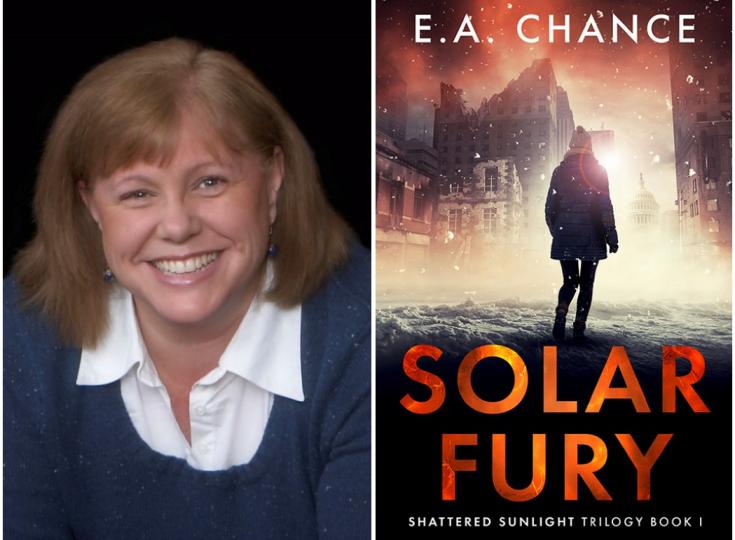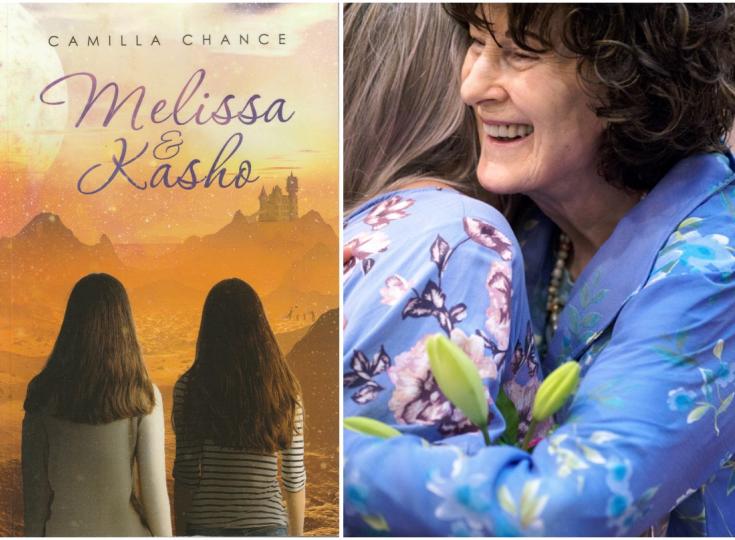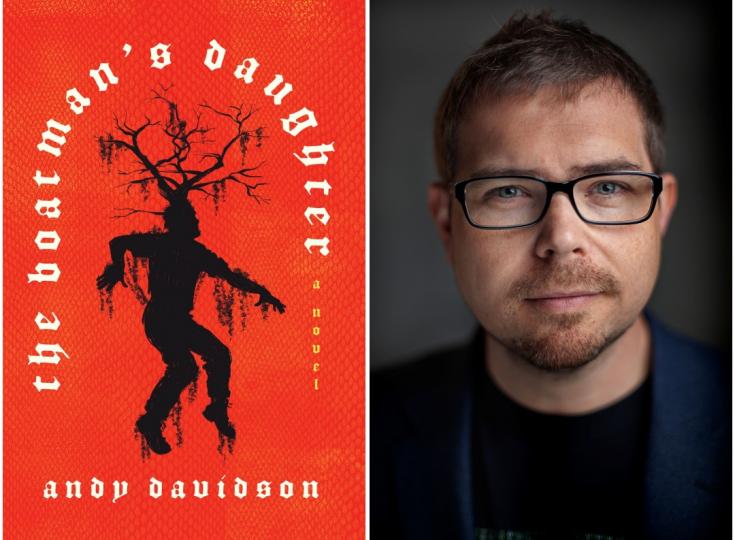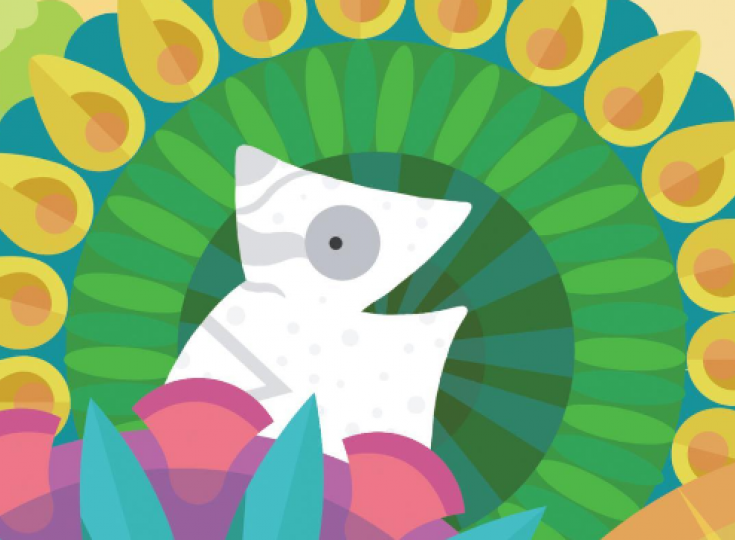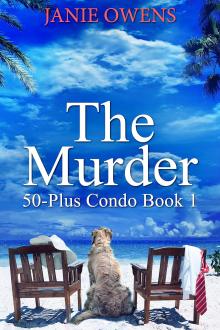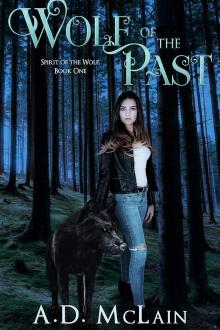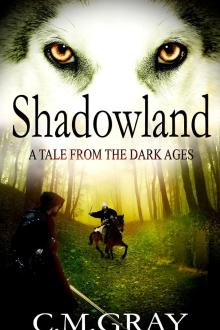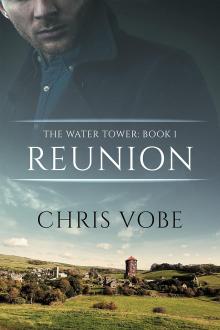Marti Ward - Drama, Action, and Near-Future Technologies
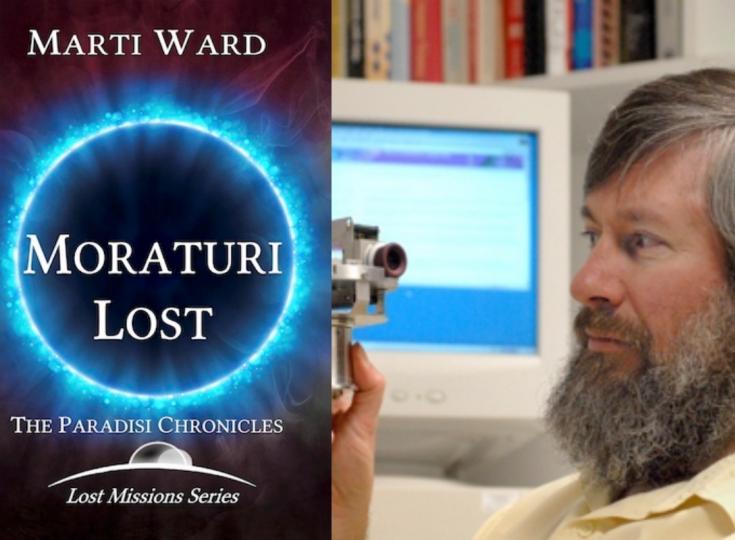
Marti hasn't been into space yet but has traveled extensively on this planet - living in half a dozen countries. He hasn't yet built an AI as sophisticated as Al - but is working on it, and has 300 publications relating to AI and Robotics. As our Author of the day, Marti tells us all about his book, Moraturi.
Please give us a short introduction to what Moraturi is about.
The Moraturi Ark arc is a story in a setting that has been lurking in my mind for many years. Although written for a broad adult audience, the Moraturi is largely about young adults being stretched to cope with a new and unexpected situation: in this case, waking up to find themselves on a ship in the middle of nowhere - that is a spaceship over two light years from the nearest star, or indeed the planet they were destined for. It is also about real science from astronomy to neuropsychology to zoology.
The plot is driven by real science as much as by real characters - and all the characters are composites from people I know, all trying to do what is best in the situation, all with their own strengths and weaknesses.
What inspired you to write about a 20-year-old veterinary nurse/trainee who has to transport 500 colonists?
The Lost Mission stories fit into the open Paradisi universe - there are stories by other authors that have been written about the development of the infrastructure and technology behind the missions, as well as about the subsequent colonization of the planet New Eden in the Paradisi system of the Andromeda galaxy. In the universe I inherited, all that was known about the lost missions was the names of the ships and some of the crew - and that they were lost.
For it to be a developmental, 'coming of age story', it needed young protagonists who would come into their own. As a pre-colonization effort, it needed colonists and animals, cryo and crew - and so of course a vet. It needed a down to earth character that was used to dealing with problems (with animals and people) in a remote corner of the earth (actually a remote corner of Wales) but was actually at home in space (actually born in space) and familiar with the ship she was to inherit.
I spent some periods of time living in different parts of Wales and got to know a variety of students in various universities there and around the world. The not-too-serious no-nonsense attitude to people and bodies (dead and alive) that I saw exhibited by students in anatomy classes was just what Eva needed. I also had some relevant experiences of my own with death and danger at that age (both at home and in my travels), so there's part of me in her too.
Tell us more about Eva Hughes. What makes her so special?
In the wilds of Wales (well, the remote farming communities), Eva picked up a little Welsh, some unexpected skills in dealing with medical problems and other emergencies, as well as a bedside manner that was born from working more with animals than with people.
In the depths of Space (well, remote shipyards for the lunar and Jupiter lagrange points), Eva has been driving spaceships since she was eight (sometimes her father might have been on hand in case anything went wrong), helping her mother invent a new generation cryotechnology (that is now going wrong), and acting as the goto point and problem solver for every child and pet in the construction fleet (sometimes her mother might have helped just a bit with the overt medical aspects).
Where does your fascination with sci-fi come from?
The earliest stories I wrote (one published when I was eight) were fantasy and I loved the fantasy and adventures stories of Enid Blyton and C.S.Lewis, but very soon I graduated to his sci-fi. I enjoyed the Tarzan adventures of Edgar Rice Burroughs, but very soon I graduated to his sci-fi. Then I met the worlds and characters of Isaac Asimov and I was hooked. But I also fell in love with the dragons and heroines of Anne McCaffrey. Louisa Locke tells me she too was inspired by McCaffrey as one of the creators of the Paradisi universe that adopted me, whose stories from later in the history are most specifically those I am steering toward - and yes include some distinctly McCaffrey elements.
But eventually I graduated from sci-fi to science, a very interdisciplinary science, and my career as a teacher and researcher became building and inventing the language, learning, robotic and other AI technologies that I learned about from sci-fi. In fact, I cite both Clarke's 2001 and Astroboy in my PhD thesis. Clarke's HAL also gets cited in Casindra Lost - though not exactly as a role model for AL, Casindra's AI.
You have traveled extensively - how has this influenced your writing?
There is a difference between those who have traveled and those who have not. Even as a student, those with a bigger picture of the world, the universe, gravitated together. It is really worth seeing the world – it gives you an understanding that there are other ways of doing things, other ways of seeing things. This also relates to my interdisciplinary bent (different disciplines have different ways of thinking about and talking about things) and my interest in language and culture (I'd been exposed to four languages by the time I reached my teens).
These days we live in a world where people with very limited experience of it try to impose their ideas on others, where scientists love their theories so much that it becomes an act of faith, where cultural identity, hidden agendas and implicit assumptions hide the truth. As a teacher, researcher and writer, one of my main goals is to show that there are different perspectives – and that as a scientist we really don't know anything: science is in reality a patchwork of conflicting theories. I strongly agree with Karl Popper that scientists should build their theories so that they are falsifiable - that is they should make verifiable predictions.
So my writing is a chance for me to explore different cultural and disciplinary perspectives, to question assumptions and explore alternatives, to see how my science affects the world, and most of all to encourage a new generation of budding scientists who will break down the disciplinary walls and ivory towers, and escape to build the next new generation of science and technology.
Besides writing, what other secret skills do you have?
Well, I speak cat… But don't tell anyone. Plus a few human languages, and I read a few more. But when I try to participate in a conversation in Dutch, people say "Sorry I don't speak German!" I learned German in country and now I speak French with a German accent while my wife does the opposite. My daughter had her zeroth birthday in Germany, first birthday in France, second birthday in Holland, third birthday in Australia, … (Yes, IT types count from zero.)
I also play piano, organ, banjo, and table tennis - when COVID permits. I used to play a variety of brass instruments, but now I expend my hot air in other ways. I prefer playing actively to just listening or watching - and I obviously I like to write as well as to read – and I read voraciously (maybe 500 books this year - many of them SFF, but some mystery and adventure stories as well as some non-fiction). I'm a member of Kindle Unlimited and my SF books are currently also available through Kindle Unlimited.
Which character did you find the most challenging to create?
Those that aren't me… As an author, there is something of ourselves in every character - and every person I meet is likely to find a piece of themselves in one of my characters. But the big challenge for every character is to be distinctive, to have their own character, personality voice…
The biggest challenge was the cats that are full PoV characters in the Paradisi Lost stories (as well as in Louisa Locke's Caelestis series).
Every character has the potential to be the hero - and for Casindra Lost some thought AL (the AI) was the main character, some thought Simba (a calico cat) deserved to be the main character - and somehow none of the reviewers have mentioned the main PoV character, Captain Jerome Sideris, as being the character they identified with. Simba's daughter Tam is a PoV character in Moraturi Lost.
Of course, I did have a secret advantage with Simba and Tam, as an ambassador from that calico contingent is currently residing with me. That's why I had to learn a bit of cat…
Why did you decide to make your characters experience amnesia?
This relates to a story arc that finds its resolution in Louisa Locke's Caelestis series. Writing to fill a gap in an existing history meant that I had to invent plausible explanations of how to get from A to B. One hint here is that … No! Read the Caelestis series and guess for yourself.
I did, and I guess that's one reason why Louisa Locke and Cheri Lasota were happy for me to fill in the gap. Cheri actually invented much of the technology that appears, at least in prototype form, in my stories - and that includes the cryo technologies that play such a big role in the Moraturi stories - and in her Paradisi Exodus series (not knowing anything of events aboard the earlier lost Moraturi mission). Also (and not by coincidence) cryo-amnesia plays a similarly important role in Cheri's stories.
There are several reasons why the amnesia is important, and some of them relate to the future development of the series - but there are already a few clues to this in Moraturi Lost. Dealing with the memory issues is also an anchor for Martha's character development - and just to let you into another secret here, much of my research relates to helping people with disabilities, including AI systems that help people deal with and avoid dementia, and rehabilitate after stroke or other forms of brain injury. So part of it is in the "write what you know" category.
Some of the interesting developments that result from the memory lacunae are already apparent in Moraturi Lost, and more will be evident in Moraturi Ring – which will be out at the start of the new year.
How much research did this book require from you to make the science-part of it ring true?
A lifetime of research in interdisciplinary science, and reading science fiction, plus about a year of on/off thinking about it before and after coming across the Paradisi Chronicles universe. But Casindra Lost and Moraturi Lost reached the stage of a 90k-word intertwined draft in the month following my first contacting Cheri and Louisa about joining their universe. This intertwining was designed to show the parallels between the two stories, on near-identical ships, but Louisa then recommended detwining them. So the current situation has emerged with the Paradisi Lost Mission series having separate arcs/subseries for the two missions. They and other Paradisi authors then had some further input and critique over the next year as the stories were polished and admitted to the canon.
This is book two in a series. Can it be read as a standalone? How does it tie in with book 1?
In the Paradisi canon, there were two lost missions, whose names already existed - and indeed Captain Sideris of SS Casindra lends his name to one of Cheri's book as well as the eponymous gate into the wormhole (obviously not called Sideris Gate when Casindra and Moraturi went through, as the naming ceremony happens in the epilogue to Moraturi Lost).
Nobody knew what happened to these missions, how they got lost. So there are two missions and thus two standalone starts to the Paradisi Lost Mission. Originally I avoided this by my intertwining of the stories but that was felt to be a bit confusing - so instead we have two shorter novels explaining how the missions got lost. Of course, both have their sequels, which follow them further as we wonder what happened to our two crews and their passengers.
So read Casindra Lost and Moraturi Lost in either order - you won't find any spoilers beyond the missions both being "lost" – which was of course our starting point for the series. Of course, as the series develops, more of the Casindra story may start to come out in Moraturi…

The book contains some plot twists. Did you plan it all out before you started writing, or did some of it just "happen" along the way?
There was a lot planned out in advance, including most of the twists. But some emerged later, including some that were influenced by the canon and comments of other Paradisi authors, and of course Beta readers.
Do you have any interesting writing habits? What is an average writing day like for you?
In my paying job, I don't really get paid for the time required for writing science or fiction, so often a 10K paper or chapter gets written over a weekend - usually for a deadline.
In semester time, I tend to deal with email first thing in the morning, and then (particularly in a COVID year) my 9-5 or later (think 3am) gets taken up with teaching, panicking students, etc.
In semester time much of the writing is done in the form of short stories over the weekend, and often late afternoon of a Monday so I have something written to discuss at my Monday evening writers group (hello Blackwood Writers' Group). Sometimes these are stories or story arcs from the future of the Casindra or Moraturi stories, but often they are fables or parables or other twisty tales that are used to refine and explore my writing skills - before Paradisi Lost, pretty well all my fictional writing was of this kind.
The original intertwined Paradisi Lost story (about 90k words that got split and then expanded into the Casindra+Moraturi Lost) was written entirely in the 10-day Christmas -New Year break (with occasional breaks for, you know… family things, catching planes, Christmas carols, and the like). I was aiming for 10K a day during this period (and much of the writing went on into the night after the revelers had gone to bed).
Moraturi Ring was drafted in a three week period (Eurail Pass) training it around Europe (from the Balkans and across Germany and France to Ireland for WorldCon). It is due out January 4, exactly six months after Moraturi Lost. Casindra Prey has been written as a sequence of incidental short stories that have yet to be woven together.
Other than that I normally write on a comfy laptop, with my lap shared by a comfy cat, with an impressive view of bush and ocean spread out before me.
What are you working on right now?
Did I mention Casindra Prey and Moraturi Ring? But actually, I am already working on parts of their sequels – there's still a lot of history to be covered.
However, I am working full-time and more as researcher and teacher, and together with my students am working on AI-driven systems that allow you to program computers (including especially parallel and quantum computers) at a higher level with much higher levels of efficiency. Then there are AI-systems based on conversational agents for helping people with various disabilities and medical problems - I've worked with people with hearing impairments, locked in syndrome, Alzheimer's and other brain injuries. I also work on developing new electrodes and new algorithms to do better brain computer interface - that is controlling computers, robots, vehicles and prosthetic devices just by thinking. Don't be surprised to see some of this AI tech appear in my stories.
I also have commercialized some of my research and you'll find two of the more interesting startups at clevertar.com and youranswer.com - both to do with speech/language interaction apps, one a talking head for a help agent, and the other a sales agent to allow you to buy things by voice from your phone.
Where can our readers discover more of your work or interact with you?
I have a sparsely populated blog where I just talk about forthcoming Paradisi offerings: https://martiscifi.blogspot.com/
As well as a more regularly updated blog where I discuss the science behind my fiction: https://martiward.blogspot.com/
Also you can reach me at [email protected] or sign up to my book announcements mailing list at https://http://tiny.cc/MW-Subscribe
Here is my Marti Ward Amazon page: http://tiny.cc/AmazonMW
And here is an example of YourAnswer in operation… https://tiny.cc/YourAnswerAshleyMartin And a talk about my science meeting my fiction at WorldCon in NZ (COVID-style)… http://tiny.cc/CoNZHumanTalkyPPT (need to download for it to talk to the slides/play videos)
